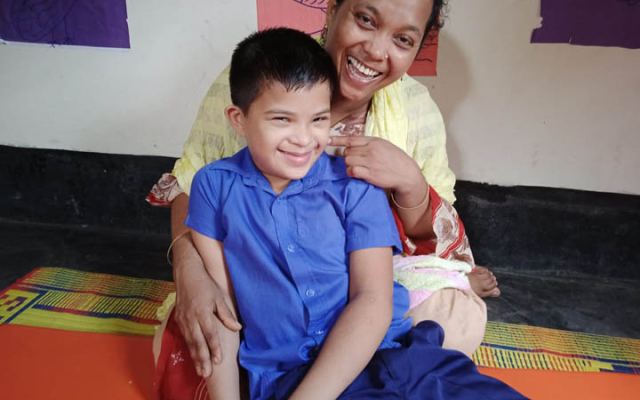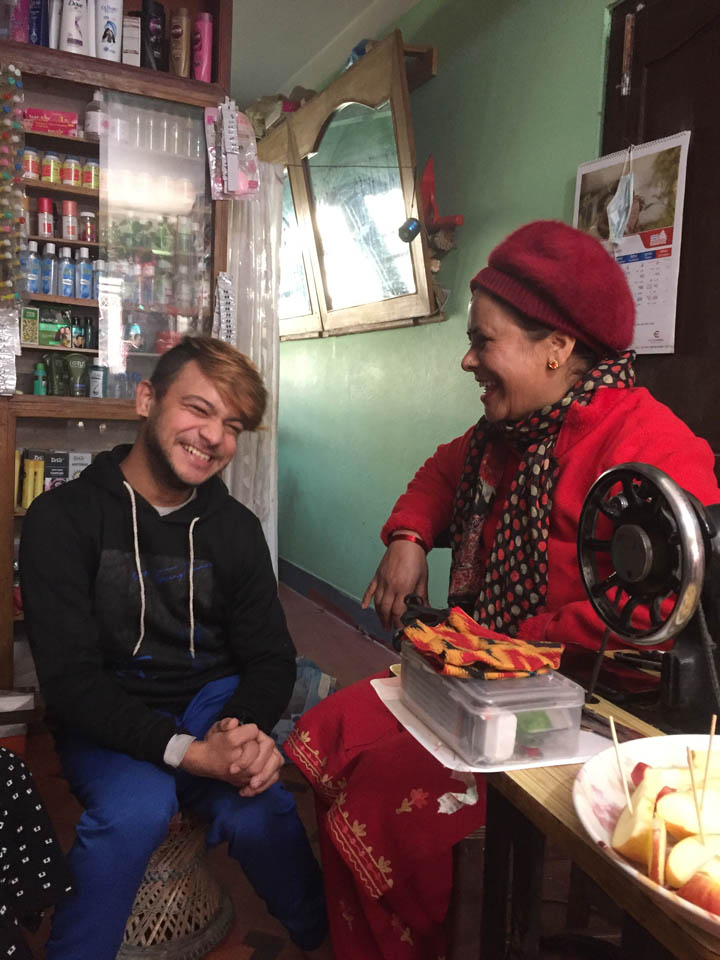What is a carer?
Published: 20 September 2022 | Updated: 21 June 2023 |

A carer is someone, either a family member or a paid helper who regularly looks after a child, sick, elderly, or disabled person.
Carer can also be an umbrella term which covers both paid and unpaid carers.


The Royal College of General Practitioners in 2011 described a carer as ‘a person of any age, adult or child, who provides unpaid support to a partner, child, relative or friend who couldn’t manage to live independently or whose health and wellbeing would deteriorate without this help. This could be due to frailty, disability or serious health condition, mental ill health or substance misuse’. This indicates the wide variety of reasons why or how a person may become a carer.
What is an unpaid carer?
The key differences between a professional carer and an unpaid carer are that:
- Professional carers are trained, paid individuals who provide care as a service, whereas
- Unpaid carers are normally friends or family members who often receive little or no training or income.
In the UK, roughly 1 in 8 adults (around 6.5 million people) are unpaid carers. Looking across Europe, this figure is even higher, at 20% of the population which includes both primary and secondary carers. Due to a lack of research, which is one of Carers Worldwide’s goals to increase, there is no specific data regarding the number of unpaid carers in India, Nepal or Bangladesh. However if we use the data from the UK and compare it to the populations of these countries, we can assume that there are roughly 200 million unpaid carers in India, 3.75 million unpaid carers in Nepal and 21 million unpaid carers in Bangladesh.
Who can become an unpaid carer for a loved one?
Anyone can become an unpaid carer for a loved one. In fact, it’s estimated that 3 in 5 of us will care for someone in our lifetime. In our countries of operation we also observe a notion of duty and responsibility when it comes to unpaid carers and the cultural expectation for families to look after one another. This, in addition to financial restrictions, means that many people are left in a situation where they are forced into becoming an unpaid carer.
What are the duties and responsibilities of an unpaid carer?
A carer’s responsibilities can range from ensuring that all medical appointments are attended, to cooking and providing domestic support for someone suffering with an illness or disability. Carers are depended on by those they care for and so there can be a constant pressure to be reliable, patient and present, which can take its toll.
It is also important to highlight that the job of an unpaid carer can often be 24/7 and thus they must always be available to attend to the needs of their loved one, regardless of whether they are in full or part time employment (link to employment rights article).
In our countries of operation, India, Nepal and Bangladesh, the need to provide round the clock care for loved ones means that a lot of unpaid carers have no opportunity to earn a living, as the work opportunities are very different from in the Global North. There are also a lot of myths and misconceptions about disability and mental illness, meaning carers and those they care for are often stigmatised and shunned by society, increasing their isolation.
What support is available for carers?
Support comes in different forms but the most commonly needed support for carers falls into the following categories:
- Financial support
- Information & training support
- Employment support
- Emotional and wellbeing support
In the UK there are various benefits and schemes to support unpaid carers. For example, in Scotland, the Carers Scotland Act of 2016 provides financial and civil support to eligible carers, including for those classified as young carers. In 2019, the British Government invested £5 million in the Carers Innovation Fund which was used to support carers outside of the mainstream health and care services. There are also benefits provided by the British government for those who qualify as unpaid carers including a Carer’s Allowance and pension credit.
As for the type of support provided by the state for carers in Asia, specifically where we work in India, Nepal and Bangladesh, this is extremely limited and is the main reason for our charity’s efforts. Although there are some entitlements for carers and those they care for, these are often not widely known about and are very difficult for carers to access. Part of our work at Carers Worldwide is lobbying and working with governments to increase these entitlements and supporting the creation of Carers’ Associations to advocate for the rights of carers in the community.
The lack of support for unpaid carers is a global issue and universally experienced. Our mission at Carers Worldwide is to achieve recognition of the role of carers and to transform the lives of carers, their families and their communities.
You can help improve the life of a carer from just £5

Any donation, however small, will help us achieve our vision of a world in which every carer is valued and their needs are met.
Just £5 a month could send a child carer to school and £25 a month could provide nutritious food to 12 disabled children at one of our Community Caring Centres, so that their carers can have some much needed respite or take part in a livelihood activity and earn an income.
A one-off donation of just £10 could set up a self help group for carers for mutual support and £50 could help a carer initiate a livelihood activity, lifting their family out of poverty.
Donate today to help us improve the lives of carers across India, Nepal and Bangladesh. Thank you!